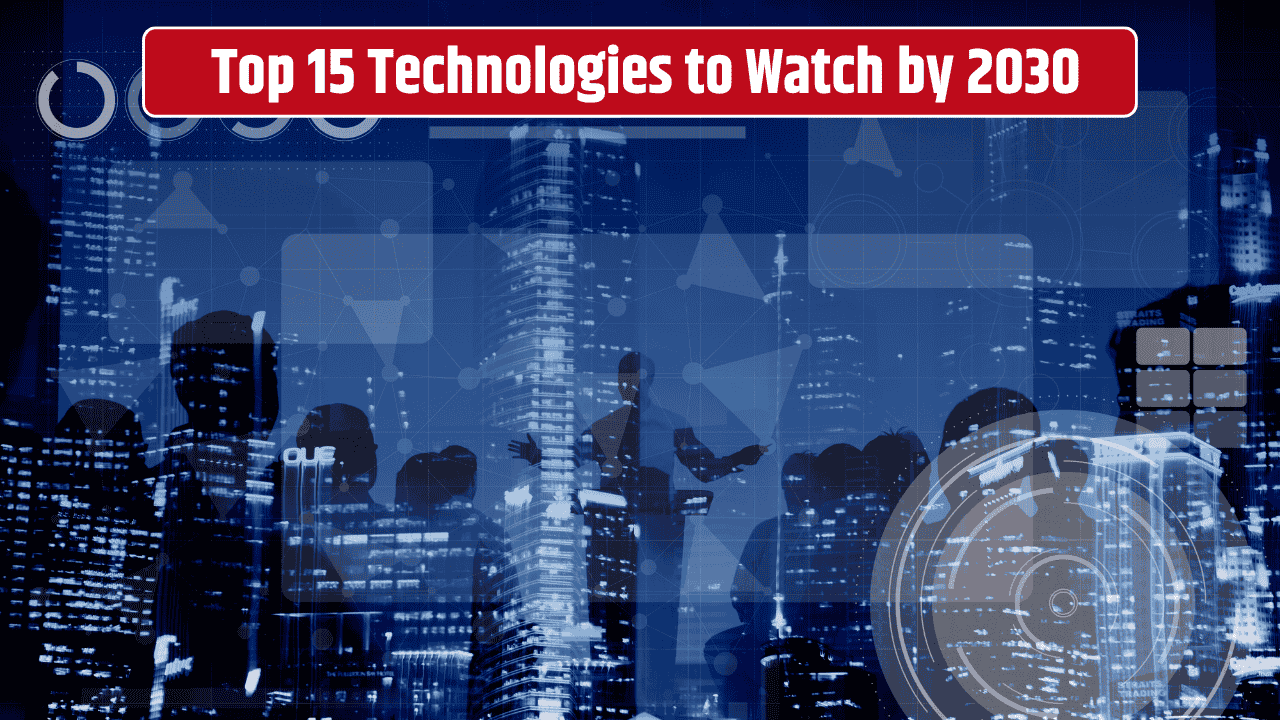Let’s get real for a second. Remember when we thought flip phones were the future? Now our fridges have Wi-Fi, and cars practically drive themselves. The pace of tech evolution is bonkers, and it’s only getting weirder—in a good way.
But here’s the kicker: the most revolutionary stuff? It’s not even mainstream yet. We’re talking about game-changers. Technologies that are quietly (or not so quietly) gearing up to punch 2030 square in the face—and maybe give it a hug right after.
Let’s take a peek behind the curtain.
Generative AI Everywhere—Not Just for Chatting
AI isn’t just writing college essays anymore. By 2030, generative AI will be building software, designing drugs, composing hyper-personalized entertainment, and maybe even running your calendar better than your brain does.
And it’s not just ChatGPT and Midjourney. Startups are popping up like mushrooms after rain, automating legal contracts, creating virtual teachers, and building synthetic voices that sound better than yours on a Monday morning.
Prediction: “AI-native” jobs will exist—entire roles built around working with AI, not just using it.
Quantum Computing: From Lab Coat to Laptop
Okay, maybe not your laptop, but quantum computers are inching closer to commercial viability. We’re talking millions of times faster than the best traditional computers for some tasks.
IBM, Google, and a few stealthy startups are racing to make this real. Quantum supremacy? Not just a buzzword anymore.
Implication? Drug discovery, cryptography, climate modeling—all set to level up, big time.
Brain-Computer Interfaces (BCIs)
Elon’s Neuralink is just the flashy headline, but there’s a whole ecosystem working on getting your brain to talk to machines. Imagine texting without moving a finger. Or controlling prosthetics with pure thought.
We’re entering sci-fi territory, but it’s getting uncomfortably real.
Synthetic Biology: Rewriting Life Itself
Biology’s going programmable. CRISPR kicked open the door, but now we’re talking about biofactories, custom-built microorganisms that manufacture things like plastics, fuels, even food.
Forget GMOs—this is biotech’s punk rock era.
Personalized Medicine & AI Health Assistants
Goodbye, one-size-fits-all pills. Hello, DNA-based prescriptions. AI will analyze your genome, lifestyle, gut microbiome—heck, maybe your Spotify playlists—to create customized treatments.
And yes, your future doctor might be an AI that never sleeps, misdiagnoses less, and remembers every symptom you ever had.
Decentralized Everything: Web3 Reimagined
Web3 got dunked on hard during the crypto winter, but the core ideas? Still burning hot.
By 2030, expect more decentralized social networks, finance tools (DeFi 2.0), identity verification, and maybe even countries experimenting with DAO-style governance.
Skeptical? Fair. But the infrastructure’s getting serious.
Hyper-Real Virtual Worlds (The Real Metaverse)
Zuckerberg’s cartoon avatars didn’t exactly inspire awe—but don’t count the metaverse out. With better graphics, haptics, and immersive AI, we’ll be spending a lot more time in digital spaces that feel eerily real.
You might “go” to a concert in Tokyo from your couch in Ohio, and it’ll feel legit.
Smart Dust & Invisible Sensors
Tiny, wireless sensors the size of a grain of sand—monitoring temperature, air quality, stress levels… maybe even your mood. Embedded everywhere. Invisible to the naked eye.
They’ll be in buildings, on farms, in factories. Spooky? A little. Useful? Insanely.
Battery Tech: Finally Catching Up
This one’s not flashy, but it’s critical. Better batteries = cheaper EVs, longer-lasting devices, and renewable energy storage that doesn’t suck.
Solid-state batteries, sodium-ion, even batteries that charge in under a minute—they’re all cooking.
Autonomous Everything (Not Just Cars)
Self-driving cars hog the spotlight, but automation is creeping into everything: trucks, ships, drones, warehouses, even farming equipment.
A robot farmer planting your kale? Not impossible.
Space Tech: Moon Bases and Space Factories
No joke—NASA, SpaceX, and a handful of startups are already eyeing lunar mining, asteroid extraction, and zero-gravity manufacturing. By 2030, space won’t just be for astronauts. It’ll be a business address.
Augmented Reality (AR) Overlays Normal Life
AR isn’t just for Pokémon Go anymore. Apple’s Vision Pro was just the appetizer.
AR glasses might be what replaces smartphones entirely—projecting your texts, calls, maps, and even virtual coworkers into your line of sight.
Climate Tech That Actually Works
Direct air capture, solar geoengineering, lab-grown meat, and carbon-negative concrete. We’re not just hoping to stop climate change—we’re trying to undo it.
Desperate times call for brilliant tech.
AI-Powered Creativity Gets Mainstream
Wanna make an album, comic book, fashion line, or video game? You’ll just need an idea. AI tools will fill in the blanks.
This won’t kill creativity—it’ll democratize it. Your next favorite artist might be a 13-year-old with a laptop and no formal training.
Digital Twins: One for You, One for the City
A “digital twin” is a real-time simulation of something physical—could be a jet engine, could be your own body.
Cities will have digital twins to simulate traffic, weather, pollution. People will have them for fitness and medical diagnostics. Creepy or cool? Both
TL;DR Table: Big Tech Trends & What They Might Break (or Build)
| Trend | What’s Changing | Impact By 2030 |
|---|---|---|
| Generative AI | Work, creativity, education | Smarter, faster, cheaper output |
| Quantum Computing | Data, research, security | Breakthrough problem-solving |
| Brain-Computer Interfaces | Communication, accessibility | Mind-machine fusion |
| Synthetic Biology | Food, materials, health | Custom-designed life |
| Personalized Medicine | Healthcare, insurance | Ultra-targeted treatments |
| Web3 | Identity, finance, ownership | Decentralized everything |
| Metaverse & AR | Social life, work, entertainment | Mixed-reality immersion |
| Smart Dust | Monitoring, automation | Ubiquitous data collection |
| Battery Innovation | Energy, mobility | Greener, longer-lasting power |
| Autonomous Machines | Transport, logistics, agriculture | Fewer human drivers |
| Space Tech | Manufacturing, mining | Commercial space expansion |
| AR Glasses | Interfaces, UX | Post-smartphone era |
| Climate Tech | Sustainability, infrastructure | Net-negative carbon future |
| AI Creativity Tools | Art, content, entertainment | Anyone can be a creator |
| Digital Twins | Urban planning, health | Predictive everything |
So, What’s the Catch?
Not everything on this list will pan out. Some might flop. Others could cause new problems—privacy nightmares, job displacement, even deeper inequality.
But here’s the real takeaway: change isn’t coming—it’s already here. The only question is whether we’ll ride the wave or get wiped out.
FAQs
Which trend has the biggest economic upside?
Generative AI and personalized medicine are both poised to unlock trillions in value. But if quantum computing hits mass deployment? Total game-changer.
What will replace smartphones?
Likely some form of lightweight AR glasses integrated with AI—less screen, more scene.
Are we all going to lose our jobs to AI?
Some, yeah. But new types of jobs will rise too. Think less typing, more prompting and problem-solving.
Is space tech just for billionaires?
For now, kinda. But by 2030, we may see low-orbit factories, space tourism, and lunar labs go mainstream(ish).
Should I be worried about smart dust spying on me?
Maybe. Depends on who owns it. Regulation hasn’t caught up yet.









